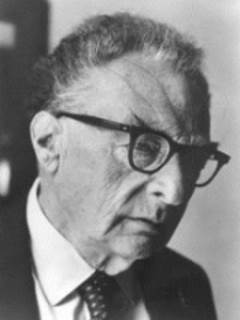
Publication details
Publisher: Springer
Place: Berlin
Year: 2019
Pages: 91-113
Series: Continental Philosophy Review
Full citation:
, ""Estrangement" in aesthetics and beyond", Continental Philosophy Review 52 (1), 2019, pp. 91-113.


"Estrangement" in aesthetics and beyond
Russian formalism and phenomenological method
pp. 91-113
in: Continental Philosophy Review 52 (1), 2019.Abstract
We investigate the parallelism between aesthetic experience and the practice of phenomenology using Viktor Shklovsky's theory of "estrangement" (ostranenie). In his letter to Hugo von Hofmannsthal, Husserl claims that aesthetic and phenomenological experiences are similar; in the perception of a work of art we change our attitude in order to concentrate on how the things appear to us instead of what they are. A work of art "forces us into" the aesthetic attitude in the same way as the phenomenological epoché drives us into the phenomenological one. The change of attitudes is a condition of possibility of aesthetic and/or phenomenological experience. Estrangement is an artistic device that breaks the routinized forms of perception: one sees the thing as new and does not just "recognize" it automatically. Shklovsky insists that it is possible if one experiences or feels the form of the work of art—in an affective and even sensuous way. We claim that this is similar to the phenomenological seeing, or intuition, which, according to Husserl, should be devoid of all understanding. Phenomenological epoché can also be described as a philosophical technique that aims to arrest the "ready-made," "taken for granted," "pre-given" meanings in order to access a new meaning which is not yet stabilized, the "meaning-in-formation." It is not enough to turn from what appears to how it appears; one has to oscillate between these conflicting attitudes, or rather to keep them both at the same time thus gaining a kind of a 3D-vision of meaning in its becoming. This double life in two different attitudes (or, following a Husserlian metaphor, "double bookkeeping") can be clarified in terms of Roman Jakobson's theory of antinomic coexistence between the poetic and communicative functions of language. The notion of "double life in two attitudes' uncovers the role that ostranenie can play in the philosophical transformation of the subject based on variety and essential mobility of the affective components involved. Proposing a phenomenological interpretation of a passage from Samuel Beckett we show how the radicalization of ostranenie can lead even to "meta-estrangement": to estrangement of the everyday "lack of estrangement." We conclude with a remark on the productivity of this form of estrangement in the phenomenological context.
Cited authors
Publication details
Publisher: Springer
Place: Berlin
Year: 2019
Pages: 91-113
Series: Continental Philosophy Review
Full citation:
, ""Estrangement" in aesthetics and beyond", Continental Philosophy Review 52 (1), 2019, pp. 91-113.




